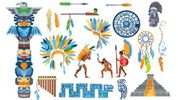Josep Celaya, the Global Head of Transformation at MAPFRE Group states
."One of my first impressions is that people in insurance overestimate the relevance of the product for the end customer. I would say it’s not about the relevance of the product, but the awareness of the customer during the day of the product. The customers tend to forget that we exist, the same way they tend to forget whose credit card they are paying with, and so on and so on.”
Celaya hits a vital point- the last thing a policy-holder needing to make a claim needs is to remember the password to the mobile app that they have never used before.
The relevance here is being able to quickly find a highly visible "Claims" button on the insurer's website that automatically starts FNOL.
That thereafter prompts the policyholder for the necessary and relevant information- as few questions as needed. And combines the digital self-service approach with human empathy and support whenever needed.
This requires both customers, adjusters and supply chain partners work from a single digital record so everyone is on the same (digital) page. No unnecessary asking for data already submitted and combining technology with human intuition.
The customer able to use any device at any convenient time to receive real-time updates on claim status and add further information.
MAPFRE sees itself as part of ecosystems rather than leading them which means insurance platforms must have open API architectures to integrate with relevant ecosystem leaders and members.
Best of breed digital claims platforms that manage and orchestrate the services when a policyholder has the most need of help from her insurer. And that are orchestration and communications hubs.
Insurers need to not just logically automate claims processes but combine this by infusing the emotional delight claims handlers can provide to customers. And this requires continually running experiments to be able to see "What works where and when, and for whom"
Only 10% to 20% of the web experience improvements attempted by Google and Bing yield positive results. Insurers need to be able to iterate, apply & test and learn in order to optimise customer UX and journeys.
Source: MIT Sloan Management Review FALL 2019
That requires No-Code platforms which let the business customise, test, refine and continuously experiment. Every day, during the day and even by the hour.
How many claims ops could respond to a CAT event or situation like the Thomas Cook Travel Company collapse that quickly? It is the test of an agile claims platform.
Bering relevant is one thing but staying relevant is quite another. Whether as a solus claims business or part of ecosystems. Make sure your technology partner can deliver this competitive advantage.
at MAPFRE, we have partnered with Amazon in order to distribute insurance. I think the question is ‘who is going to run the show?’, ‘who is going to be the main player of that ecosystem?’ There is an interesting struggle between the manufacturers, the technology platforms, and even new platform players like Uber, to name one. Many interesting things are happening there. It is very likely that manufacturers, either the ones that are already dominating the market or new ones, are at the centre of that ecosystem. There are other ecosystems where the reality is still being configured, so it is less obvious who is going to be in the centre. Connected home and health are still environments that are very open. This is a threat as well as an opportunity, it really depends on what you plan to do.
https://www.digitalinsuranceagenda.com/323/the-challenge-we-face-is-to-create-relevance/









